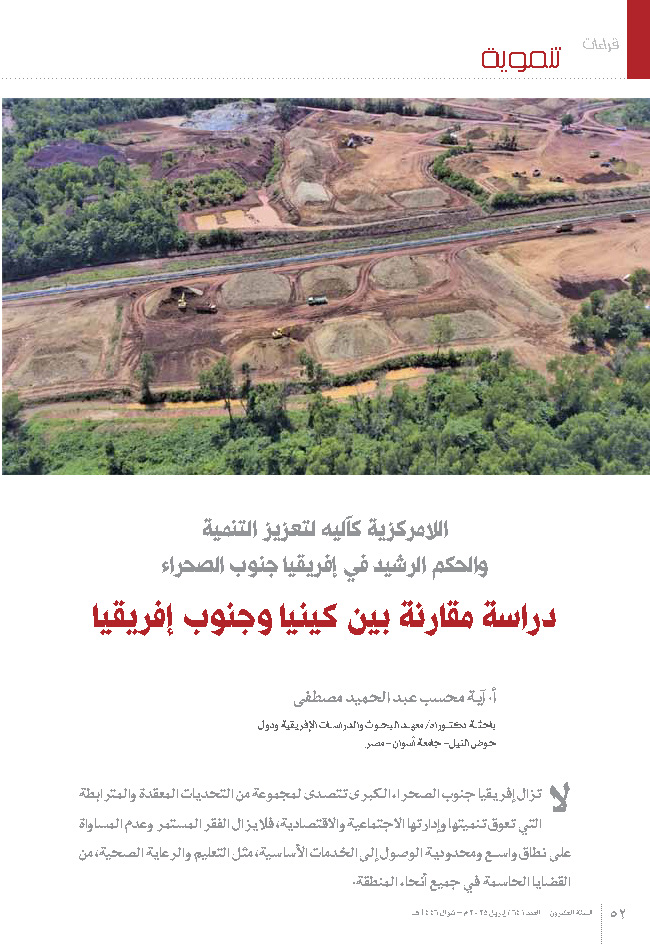Publisher: Qira’at Afriqiyah Magazine
Issue: 64, Aprill 2025
ISSN: 2634-131X
Year : 20
Pages: 52-69
Author: Ayaa Mohaseb Abd Elhamied Mustafa
Download pdf

Abstract:
This study examines decentralization as a mechanism for fostering development and good governance in Sub-Saharan Africa, with a comparative analysis of South Africa and Kenya. The research explores the legal, administrative, and financial frameworks governing decentralization in both countries and assesses their impact on public service delivery, political participation, and socio-economic development. Using a comparative analytical approach, the study identifies key similarities and differences between the two models. South Africa has adopted a three-tier governance system aimed at addressing historical inequalities, while Kenya has implemented a devolved system of county governments to promote equitable resource distribution and local autonomy. However, both models face challenges, including unequal resource allocation, corruption, and weak institutional capacities, which have hindered the full realization of decentralization’s intended benefits. The findings indicate that the effectiveness of decentralization is contingent on strong institutional design, good governance, and robust financial and administrative oversight to ensure sustainable and positive outcomes. Accordingly, the study provides policy recommendations for improving decentralization frameworks, including strengthening accountability mechanisms, enhancing institutional capacity, and ensuring equitable resource distribution to promote inclusive development and good governance in diverse African contexts.
